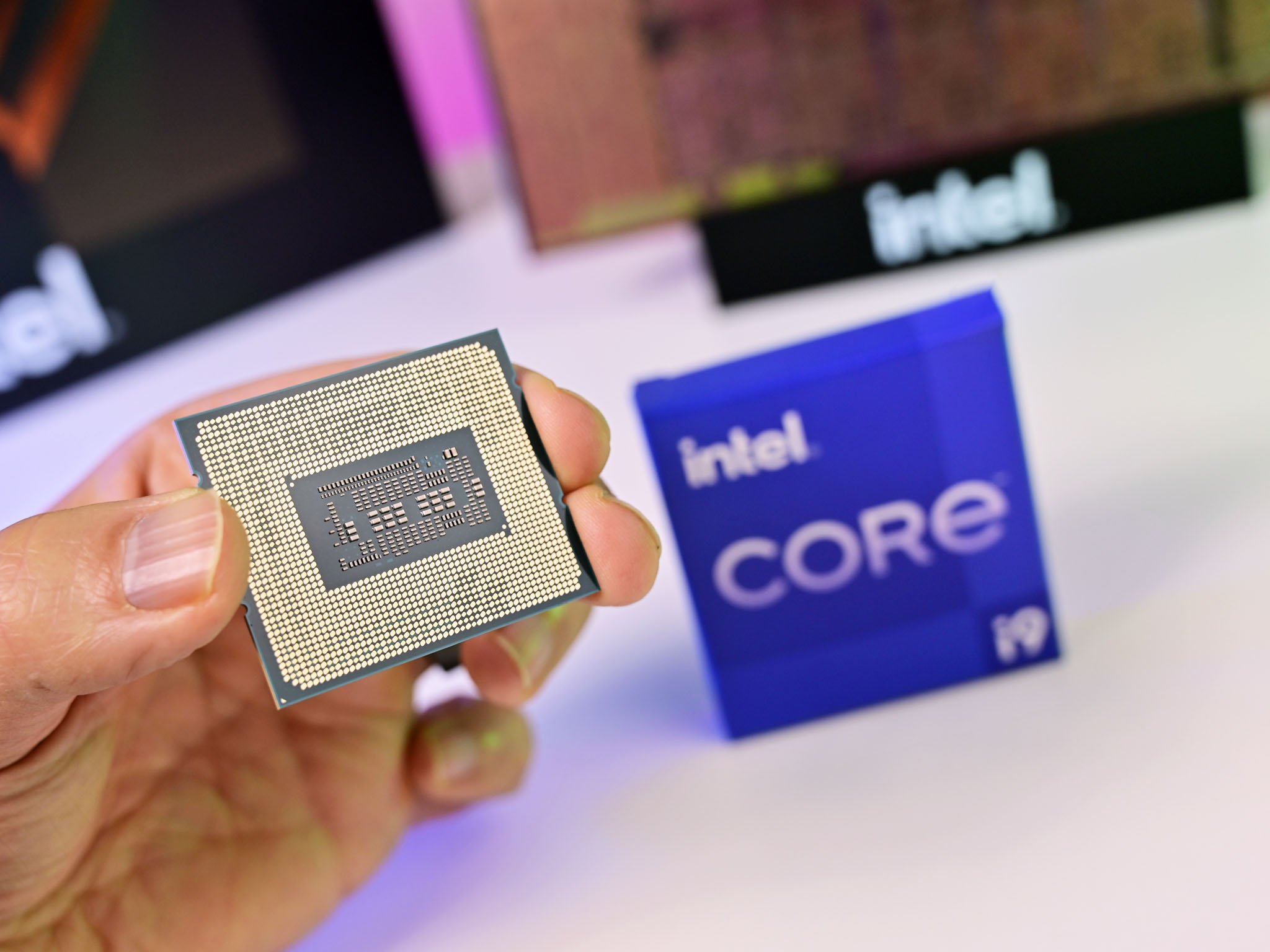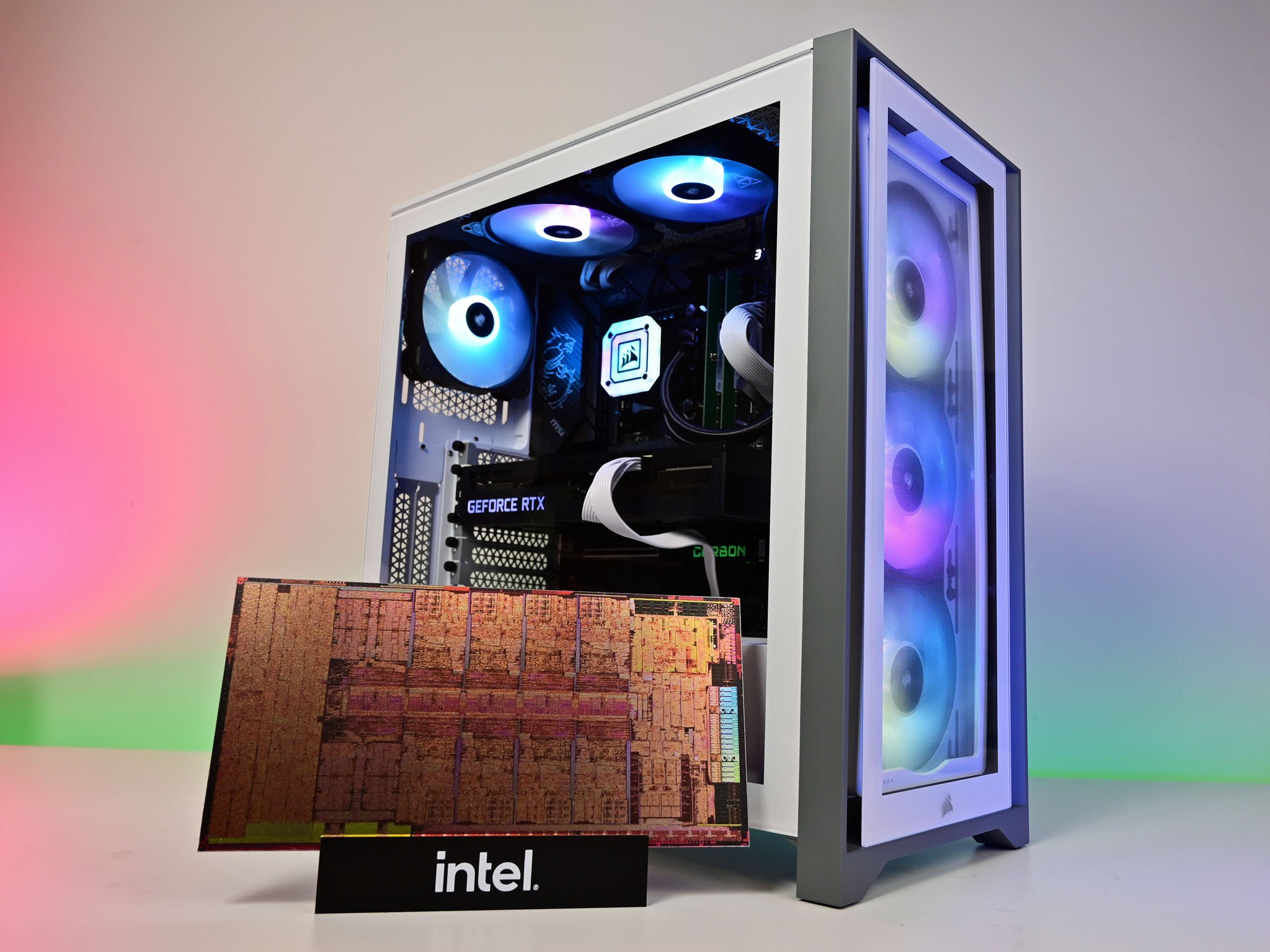Intel has felt the heat since 2017 after AMD launched its new Ryzen family of processors. Intel had enjoyed countless years of little to no competition, particularly in the PC desktop space, but all that changed with AMD "ryzing" from the ashes. The two competitors have traded blows since. While Team Blue remained out ahead, AMD's line-up was considered the best CPUs.
AMD has been able to power ahead also in part to its manufacturing partner TMSC, which has been able to shrink the marketed transistor size down to just 7nm with the latest Ryzen 5000 series processors. Intel has been stuck on what it used to refer to as 14nm with the recent 11th Gen CPUs on what Intel called its refined 14nm process using a 10nm design.
But that's all changed with Intel's latest 12th Gen processors. This latest generation of CPUs is based on the "Intel 7" process, previously referred to as Intel 10nm Enhanced SuperFin (10ESF) — you can simply think of it as on a roughly equal sitting with TMSC's 7nm process used by AMD.
Is this new generation of Intel processors enough to entice those who may have departed the company for AMD Ryzen? We've got Intel's new flagship, the Core i9-12900K right here to find out!
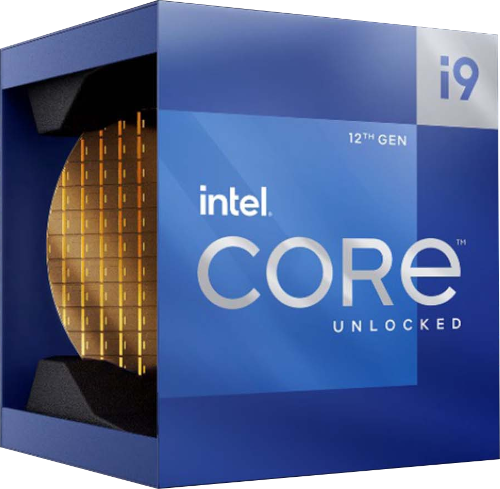
Bottom line: Intel made good use of the drawing table and returns with something truly special. The Core i9-12900K is a leap in the right direction for those seeking a powerful, yet efficient desktop processor.
Pros
- Exceptional performance
- 125W TDP at stock
- PCIe 5.0 support
- DDR5 RAM support
- Great price
Cons
- No bundled cooler
- Requires new motherboard
- Can get real hot loaded/overclocked
Intel Core i9-12900K: Price and availability
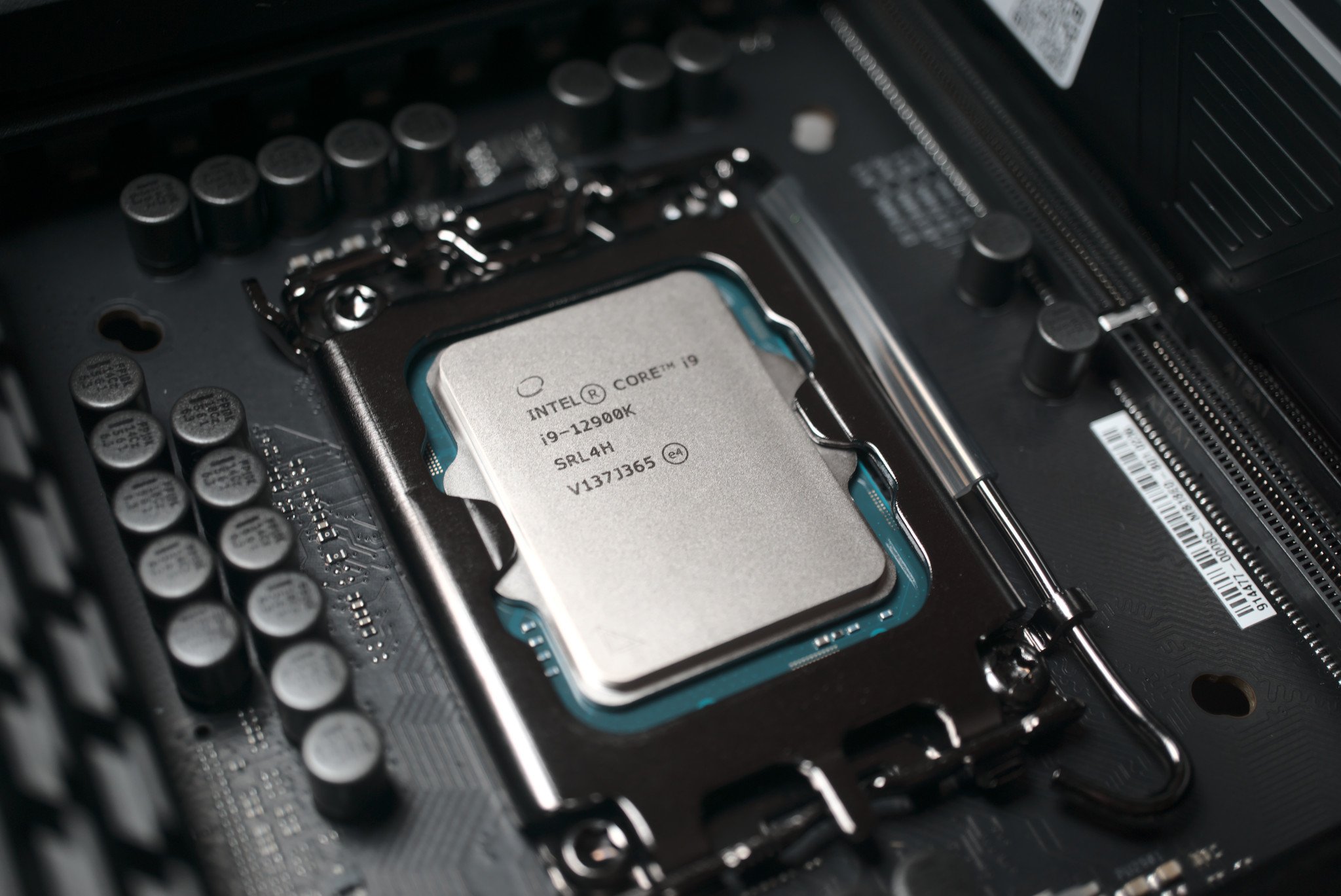
Intel announced the Core i9-12900K alongside other 12th Gen processors on October 27. These new processors are available at full MSRP and you should expect to pay around $589. This is an aggressive price for a brand new processor with 16 cores and 24 threads, largely in response to the success of AMD's Ryzen 9 range of CPUs.
One point to bear in mind is the cost of DDR5 RAM and a Z690 motherboard if you wish to take advantage of all the new tech offered by this CPU. If you're holding out for this launch to construct a new PC from scratch, that shouldn't be an issue, but an upgrade from a 10th Gen Intel CPU may require some additional cost factored in.
12th Gen
All the latest news, reviews, and guides for Windows and Xbox diehards.
Intel Core i9-12900K: Alder Lake
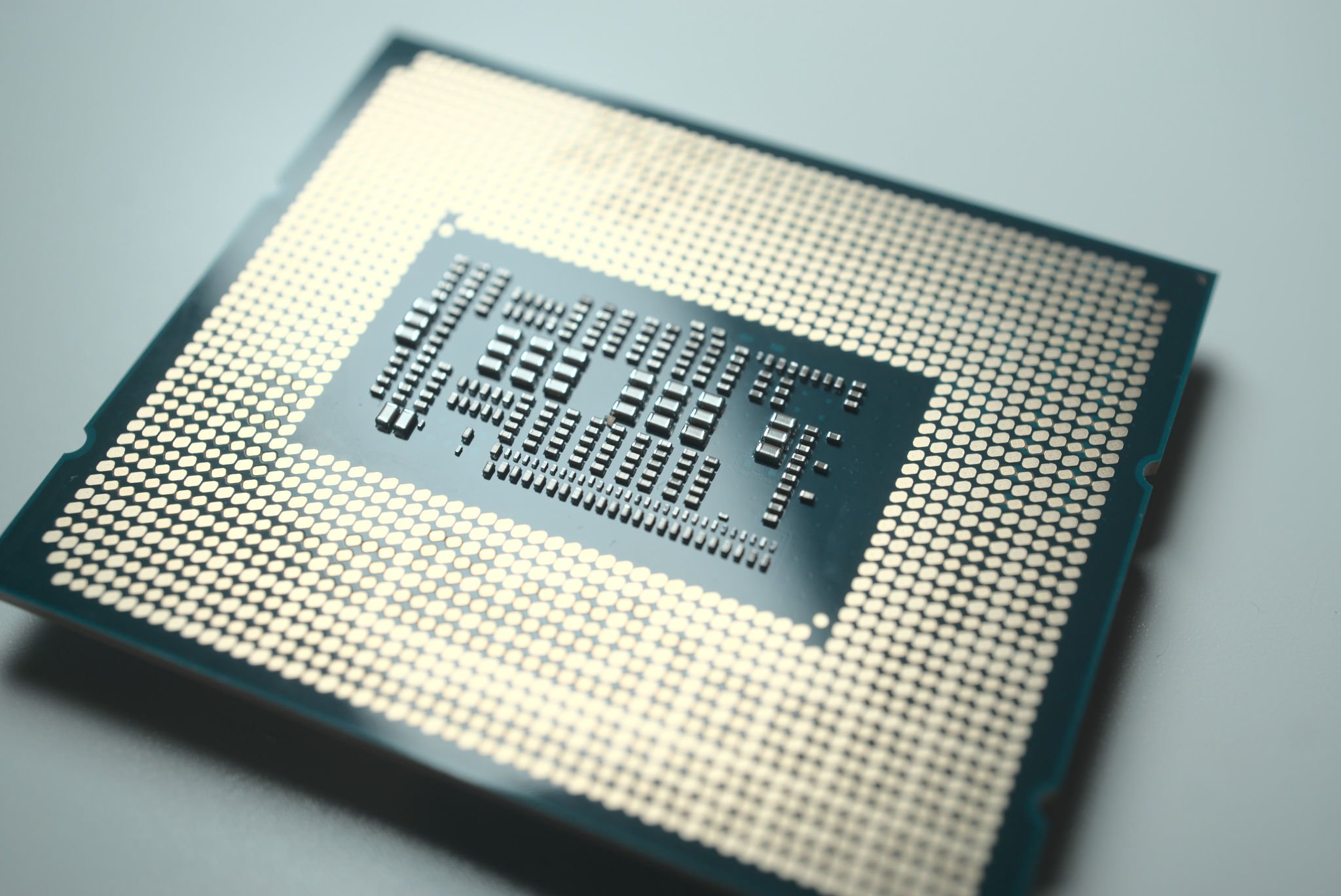
Alder Lake is Intel's codename for its 12th generation of processors. These new CPUs are special in that they're built using Intel's new Intel 7 (10nm) manufacturing process and follow the "big.LITTLE" hybrid design principle we've seen with ARM chips like the M1 from Apple. The company is banking on high-performance Golden Cove and more power-efficient Gracemont cores.
So what's all this hybrid core tech jargon? Simply put, it follows the same principle pioneered by British-based Arm Ltd, the company behind ARM chips found in countless devices, including your smartphone. The idea is to mix very power-efficient single-threaded cores that handle low-priority tasks with more traditional PC-grade multi-thread, high-performance cores to handle everything else.
Desktop processors, in particular, have always been power-hungry but offer incredible levels of performance. This new approach cuts this power down slightly in favor of some cores that are designed specifically with certain tasks in mind. This should result in better (and more efficient) overall computing performance.
Golden Cove cores will handle all the main tasks like important processes, games, in-use apps, and other tasks while other, lower-priority apps and tasks get pushed off onto the Gracemont cores, freeing up resources. The end result is a core and thread count that seems out of place in 2021. The Intel Core i9-12900K, for instance, has 8 Golden Cove cores (16 threads) with an additional 8 Gracemont cores (8 threads).
Alder Lake brought a new hybrid core design for 12th Gen.
This is all handled by Intel's new scheduler called Intel Thread Director. It's supported by Windows 11, which is what Intel recommends with its new processors. The software will be able to work with the CPU to manage tasks in the most efficient way possible, leading to considerable performance gains.
It's been the case for years that more cores and threads don't necessarily lead to better performance and Alder Lake offers further proof through impressive results. As well as this new array of cores and threads, Intel also opened up support for DDR5 RAM and PCIe 5.0 with Alder Lake, snatching the standards lead from AMD.
Whilst both PCIe 5.0 and DDR5 aren't mature enough to see positive gains across the board with new hardware, it does mean a PC with a 12th Gen Intel CPU will be ready for serious upgrades further down the line. If you were disappointed by the Intel Core i9-11900K, you'll be pleased to read the successor is anything but an evolution.
Impressive results
Intel Core i9-12900K: Benchmarks & performance
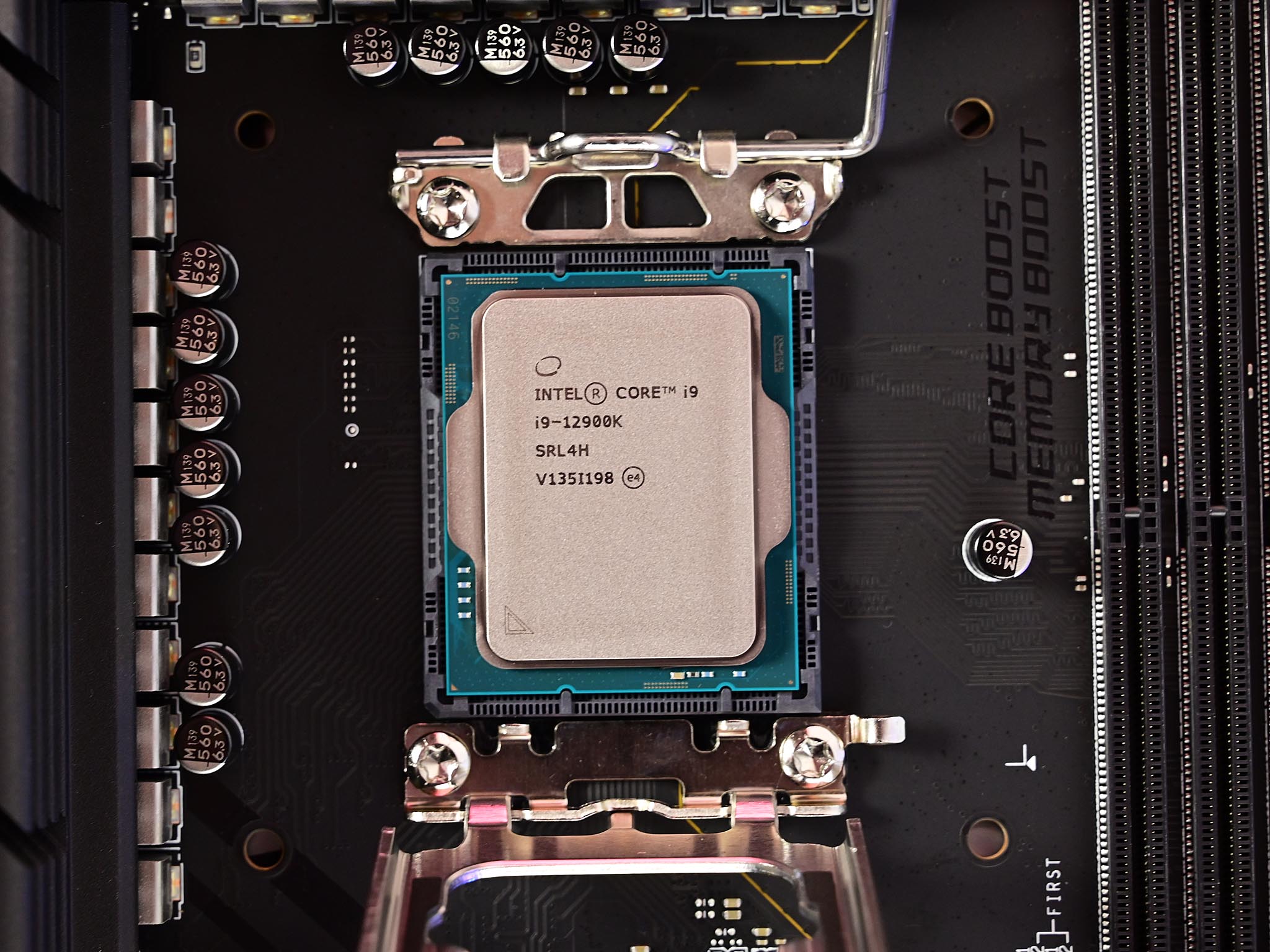
The Intel Core i9-12900K is a beast of a processor. On paper, Intel packed inside 16 physical cores (consisting of 8 efficient and 8 performance cores) with a total of 24 threads. Compared to the most capable desktop-class processor on the AM4 platform, it's more than a match for the AMD Ryzen 9 5950X.
As well as the AMD chip, which we gave a full five-star rating for its performance and value, we'll be comparing the i9-12900K against its predecessor to see just how much of a leap in the right direction Alder Lake is for Intel. The chart below shows the three processors lined up on clock speeds, cache, PCIe support, and more.
| Category | Intel Core i9-12900K | Intel Core i9-11900K | AMD Ryzen 9 5950X |
|---|---|---|---|
| Cores/Threads | 16/24 | 8/16 | 16/32 |
| Base Frequency | P: 3.2GHz E: 2.4GHz | 3.5GHz | 3.4GHz |
| Boost | P: 5.1GHz E: 3.9GHz | 4.8GHz | 4.9GHz |
| Turbo Boost Max 3.0 | 5.2GHz | 5.2GHz (favored cores) | ❌ |
| Memory | DDR4-3200/DDR5-4800 Up to 128GB | DDR4-3200 Up to 128GB | DDR4-3200 Up to 128GB |
| L3 Cache | 30MB | 16MB | 32MB |
| Integrated Graphics | Intel UHD Graphics 770 | Intel UHD Graphics Xe 750 | ❌ |
| PCIe | PCIe Gen 5.0 x 20 | PCIe Gen 4.0 x 20 | PCIe Gen 4.0 x 20 |
| TDP | 125W | 125W | 105W |
| Manufacturing Node | 10nm | 14nm | 7nm |
| Socket | LGA1700 | LGA1200 | AM4 |
| Price | $589 | $454 | $799 |
In order to test the Intel Core i9-12900K properly, both I and Executive Editor Daniel Rubino received the latest Z690 motherboards and DDR5 RAM. Both systems were running DDR5-4800 and PCIe 4.0 GPUs from NVIDIA. The motherboards differed with one test rig running an ASUS ROG Maximus Z690 Hero and the other was built atop the MSI MPG Z690 Carbon WiFi.
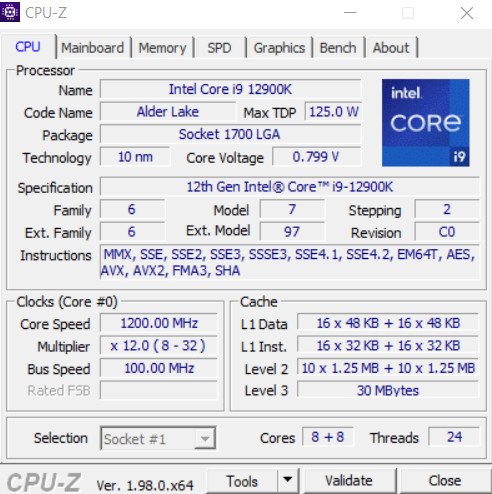
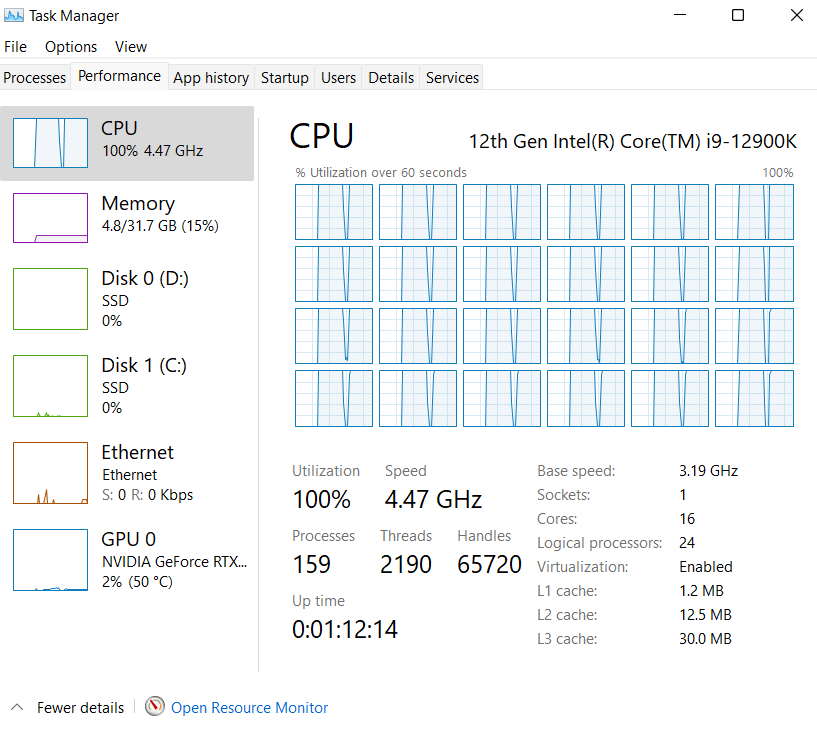
The Core i9-12900K may be on 10nm, but you wouldn't notice with the performance.
The story of how Intel's Core i9-12900K compares to its predecessor, the Core i9-11900K, showcases how much of an upgrade Alder Lake is. CPU-Z showed a score increase of 99 for single-core and 4,620 for multi-core performance. Scores of 811 (single) and 11,154 (multi) are impressive, especially when you consider the AMD Ryzen 9 5950X came in at 648 and 11,906, respectively.
We observed similar results in Cinebench R23 with the Core i9-12900K pulling back and taking the fight to AMD. Time Spy and PCMark 10 saw considerable gains for the Intel chip, surpassing the Ryzen 5950X without issue. The most impressive feat here is that Intel is still technically using a 10nm process, whereas AMD was already on 7nm with the Ryzen 5000 series.
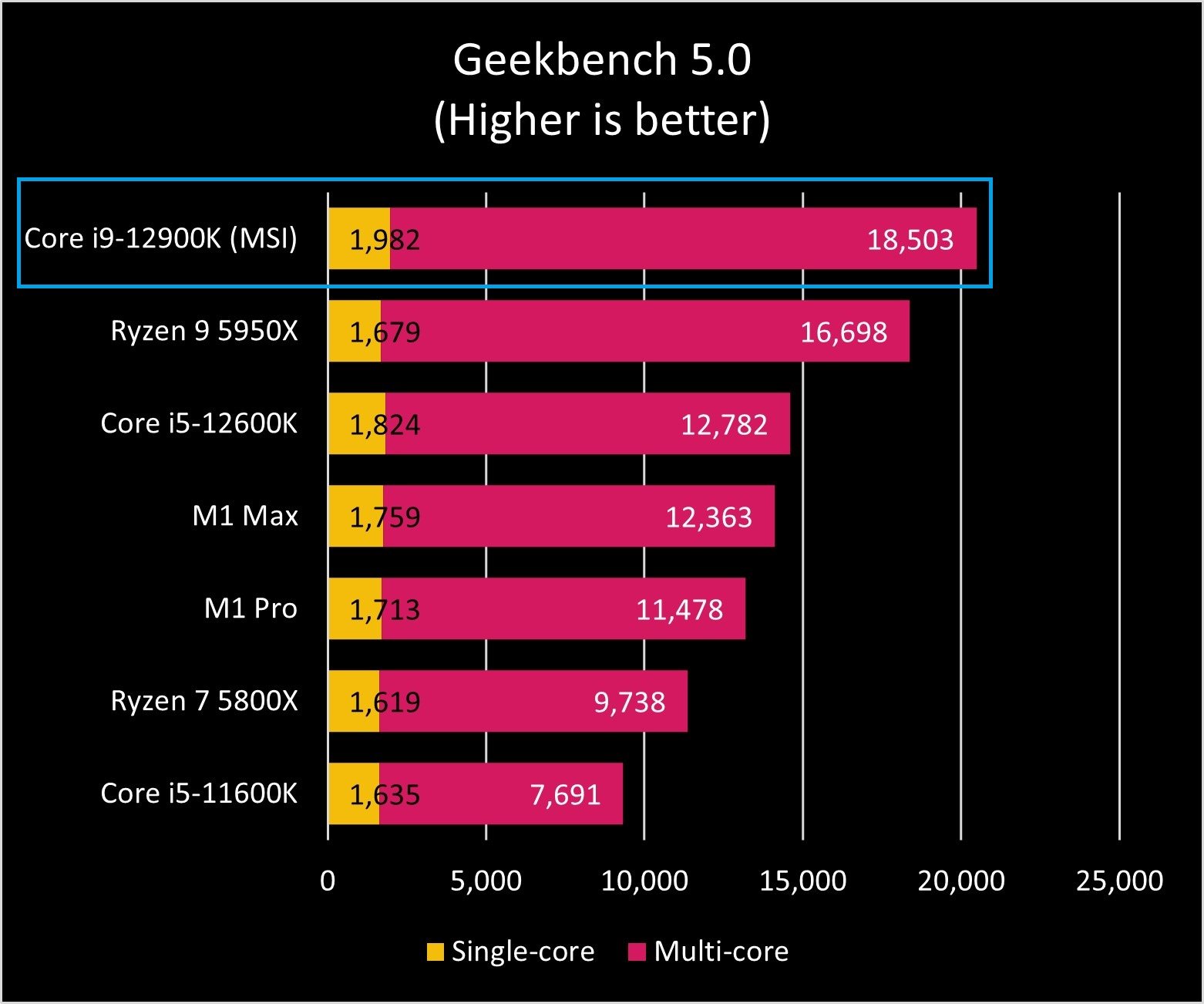
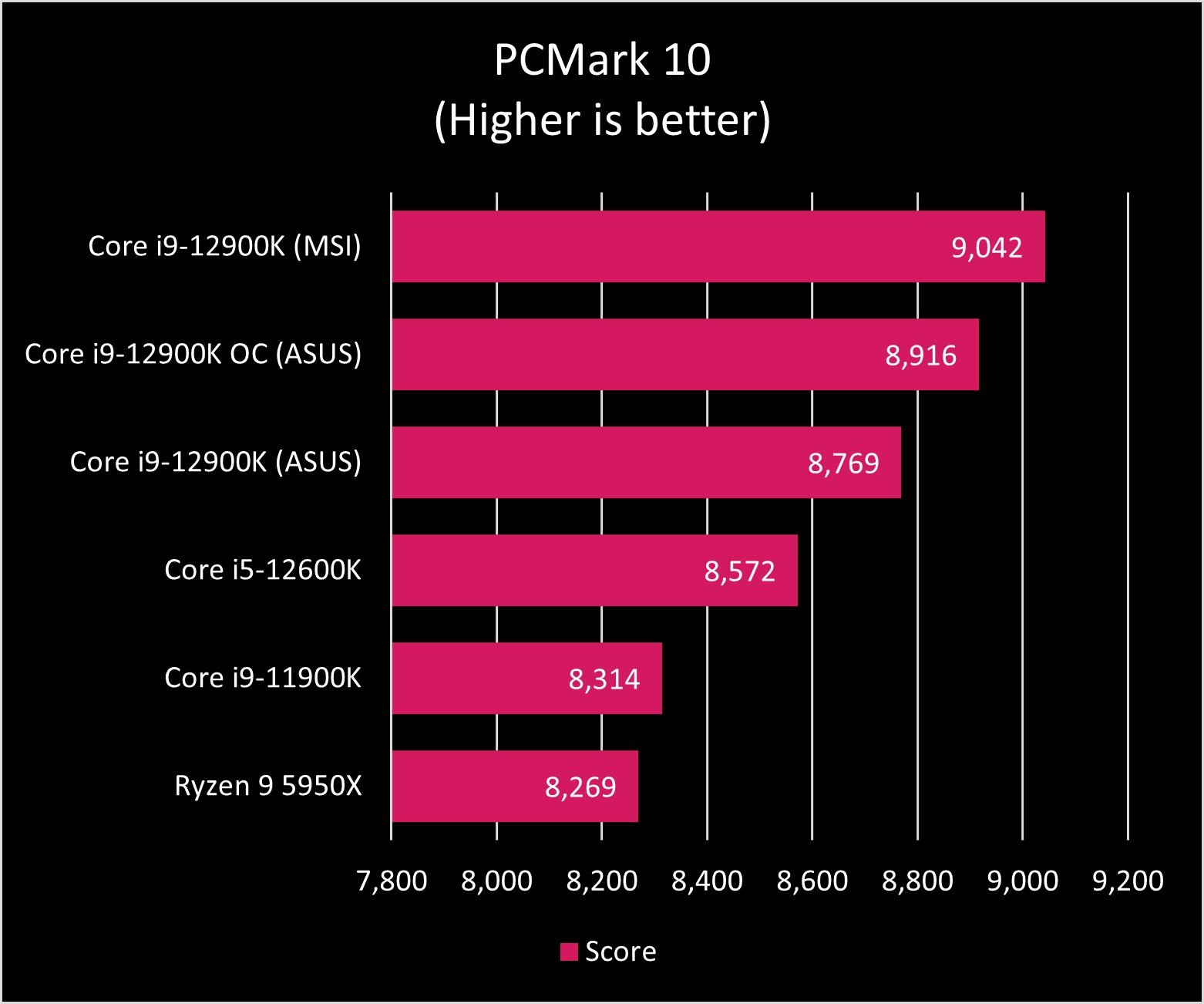
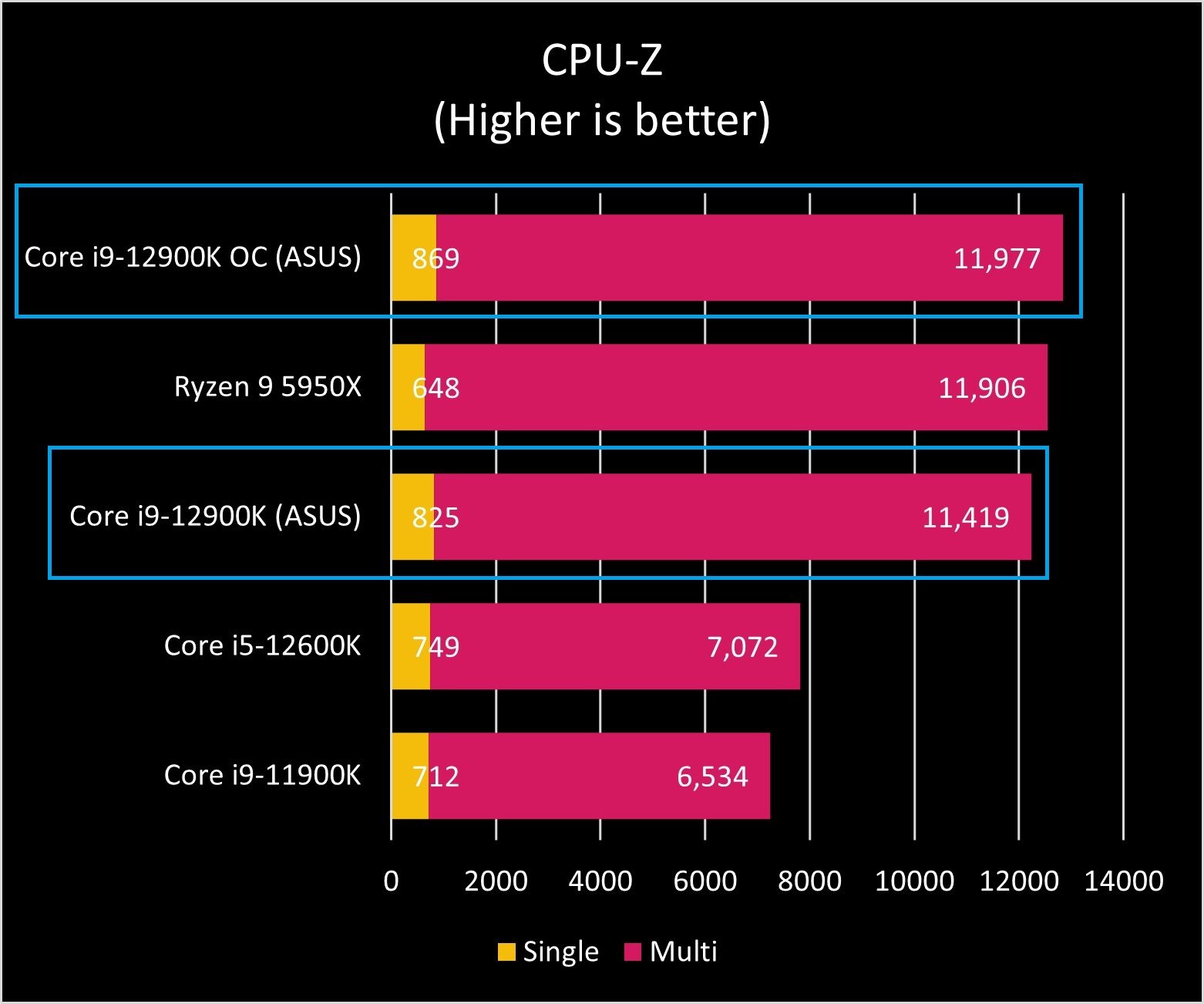
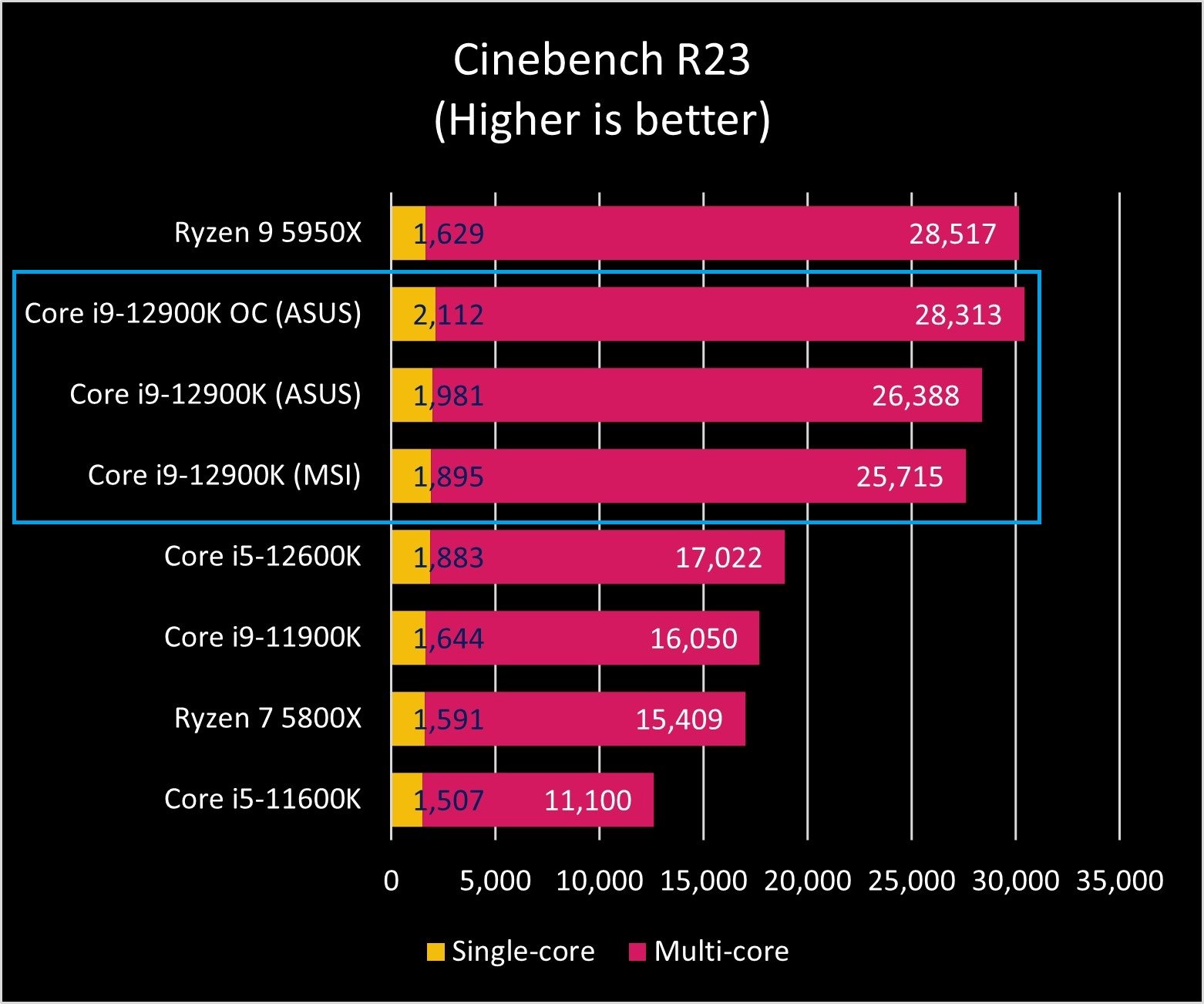
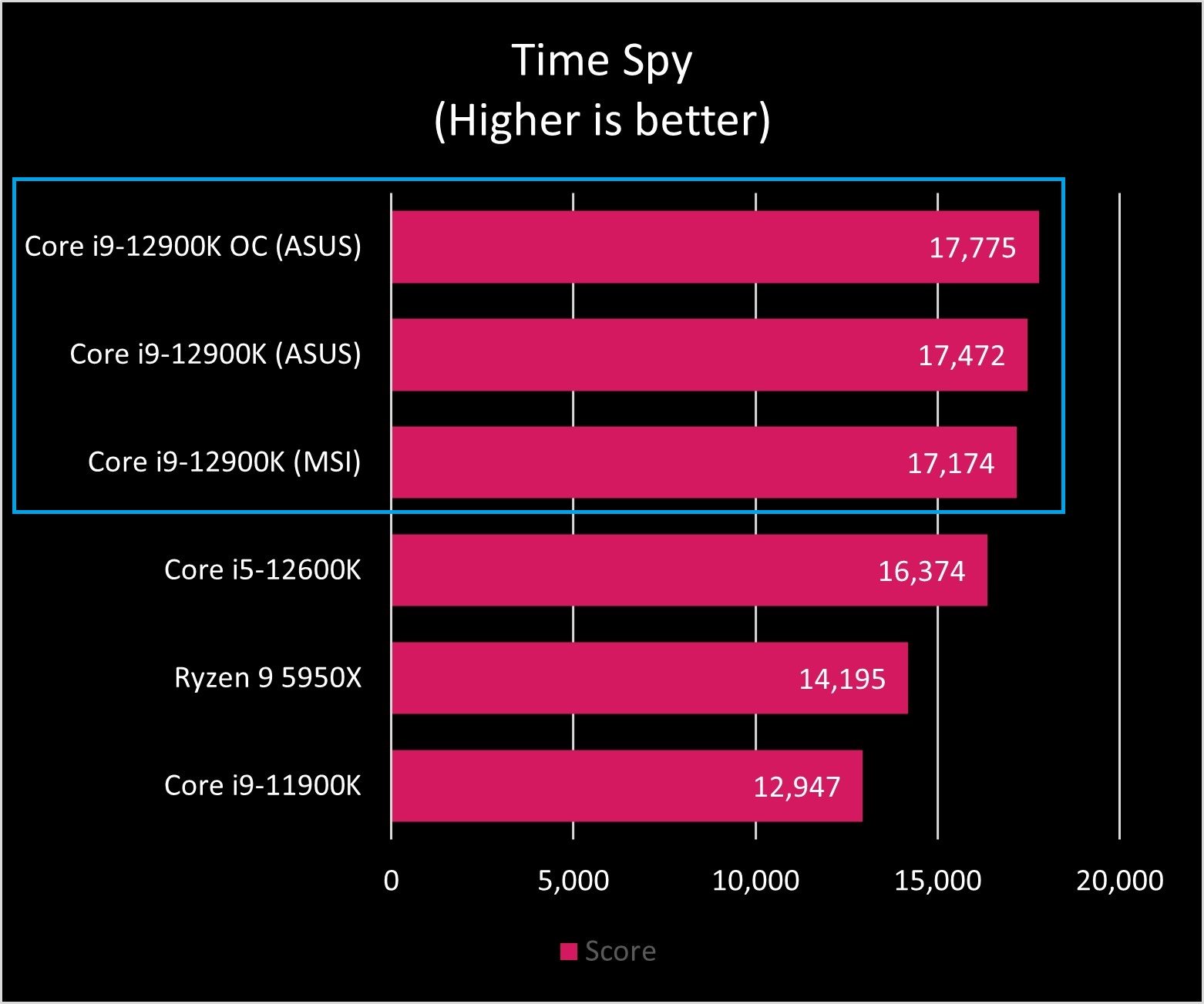
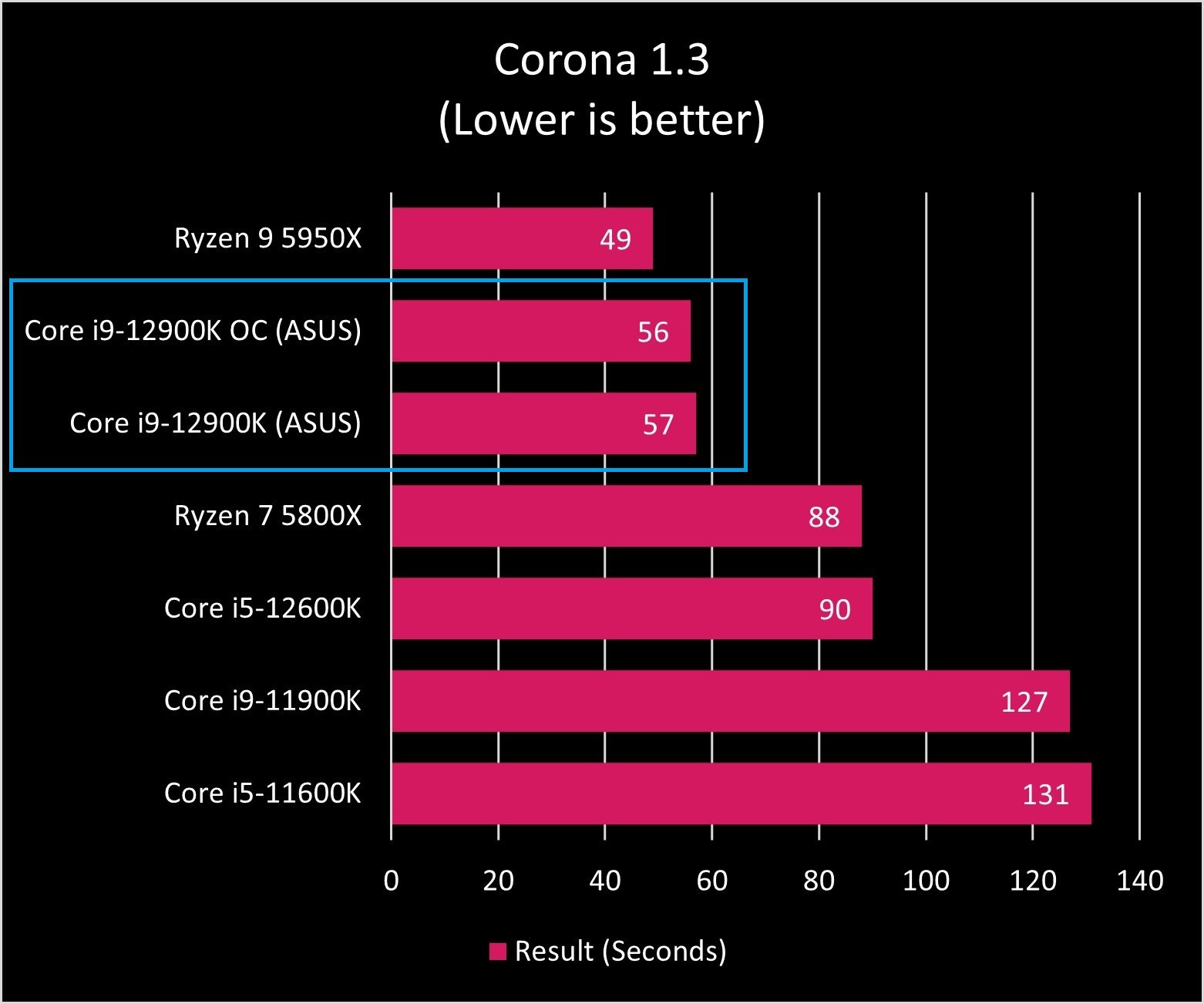
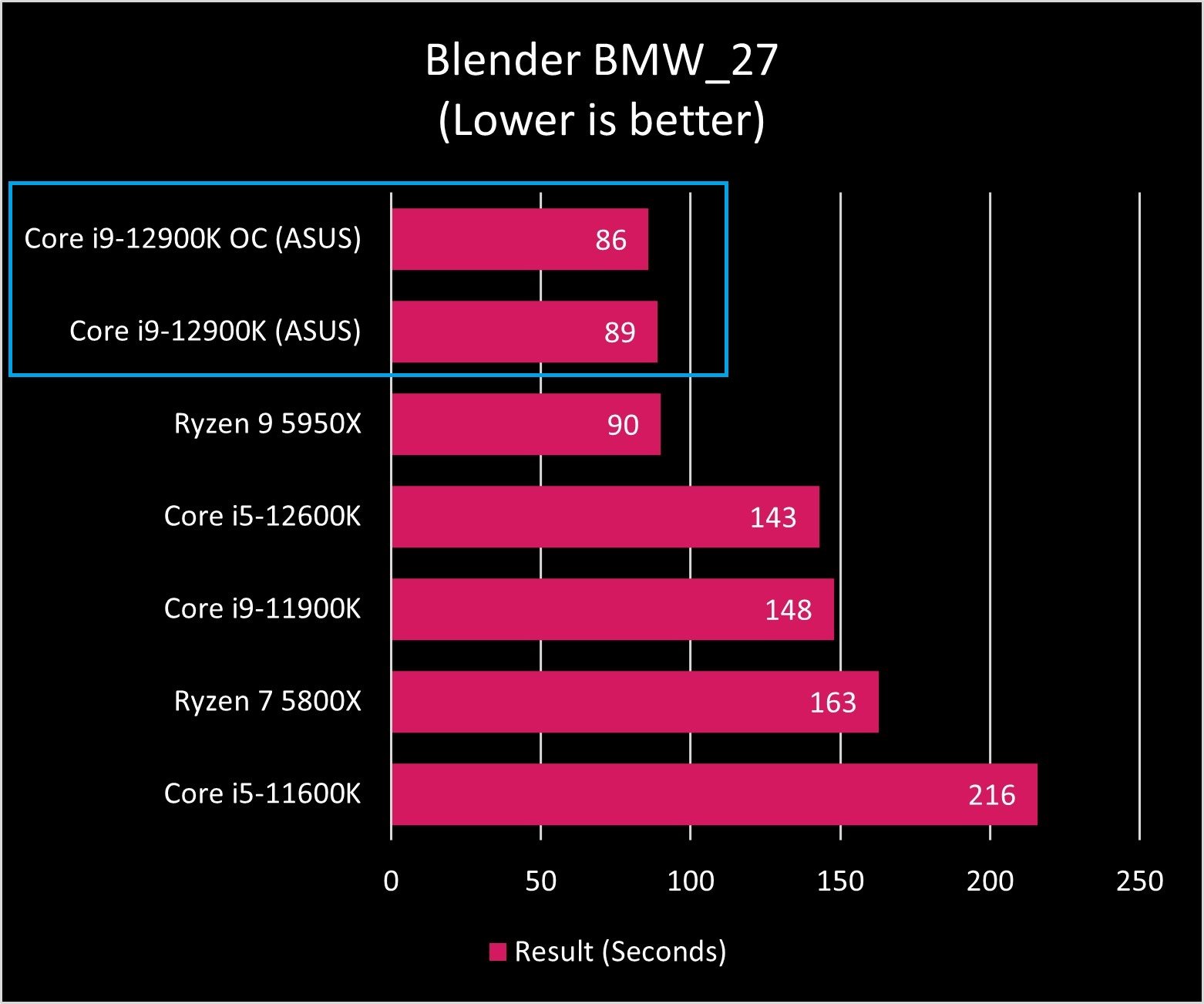
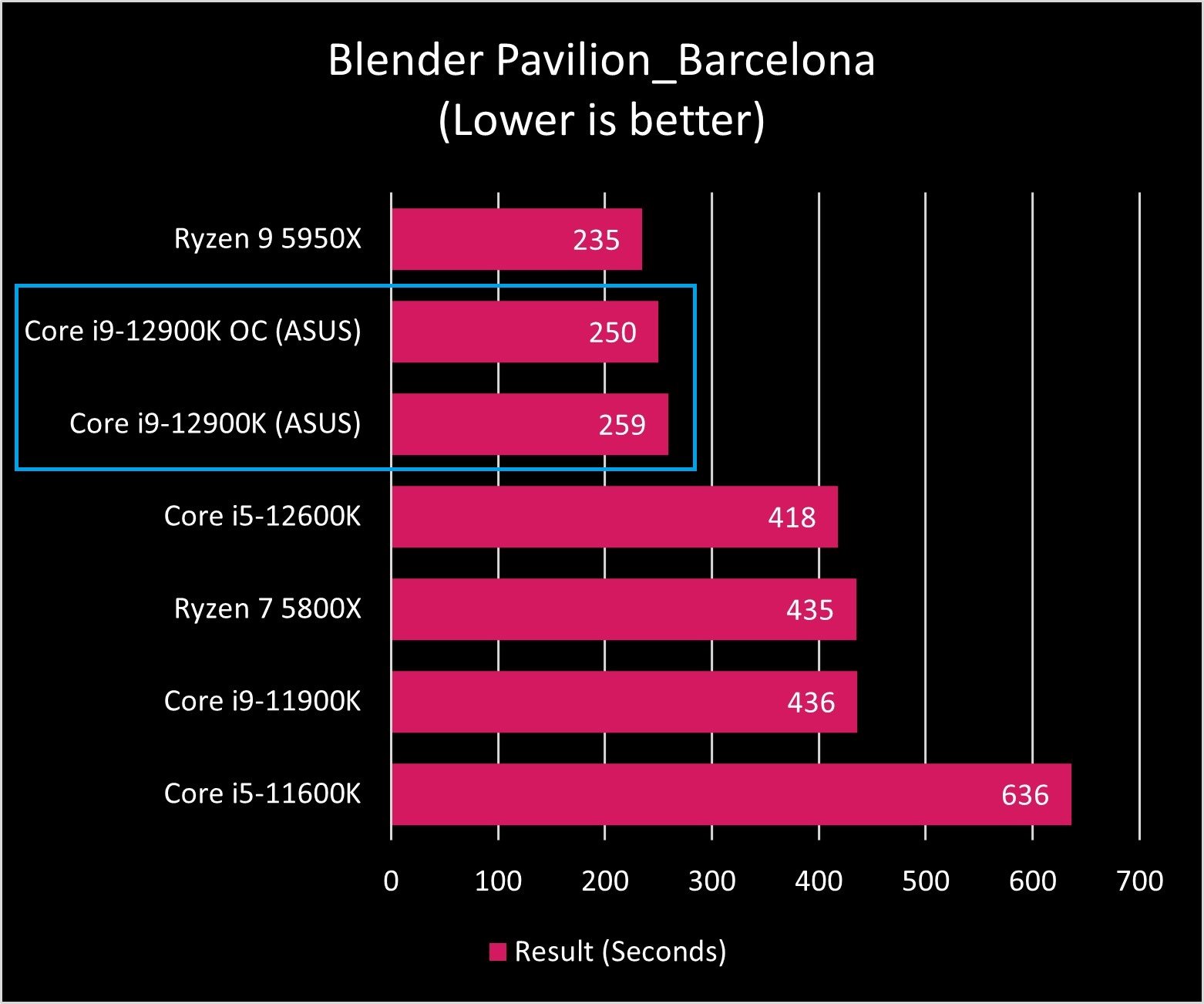
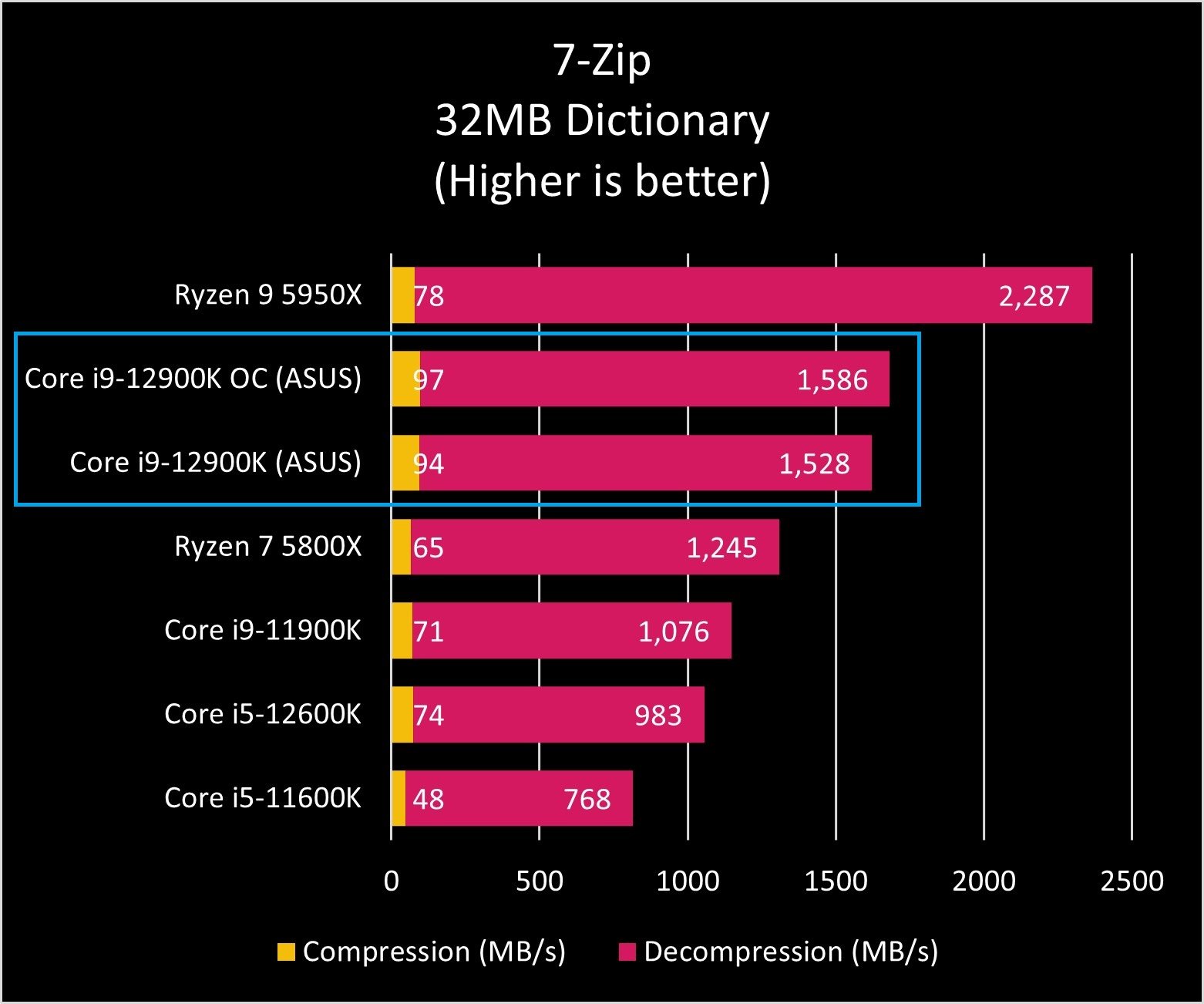
The Intel Core i9-12900K doesn't get too hot, especially if you have enough thermal capacity. An all-in-one CPU cooler with a 360mm rad could be viewed as overkill for a single component, but if you want to push a processor such as this into the realm of overclocking, you'll want the additional headroom.
At stock, the Core i9-12900K has a TDP of 125W, but this can hit 250W when the turbo tech kicks in. Factor in overclocking and you'll have even more power and heat to deal with. Temperatures were great across all of our tests, using 360 AIO coolers. A stock Core i9-12900K can sit comfortably at 22C when idling and push up to around 60C when under load.
| Temp tests | ASUS ROG Ryujin II 360 AIO | Corsair iCUE H150i Elite Capellix 360 AIO |
|---|---|---|
| Idle | 22C 72F | 27C 72F |
| Gaming | 43C 138F | 39C 91F |
| Stress | 81C 172F | 90C 194F |
| Idle (OC) | 22C 72F | - |
| Gaming (OC) | 51C 151F | - |
| Stress (OC) | 90C 194F | - |
These tests were performed in two different environments. Stress tests performed in Cinebench R23.
Overclocking the Core i9-12900K is an easy process and can even be handled by the motherboard if you don't want to mess with clock and voltage settings. To simulate what an average PC owner would experience, we opted to use ASUS' AI overclocking feature to set everything automatically. This also increased RAM speeds from 4800MHz to 5200MHz.
The results were impressive, the 5400MHz boost bumped up our benchmark results, but the added heat did cause the 360mm AIO to ramp up to keep temperatures down. The Core i9 was hitting 90C in Cinebench R23 synthetic tests, which wouldn't be the case in games (Ashes of a Singularity, GTA V, Mount & Blade II, etc.) and more realistic tasks, settling at around 66C across the board.
As one example for gaming, when paired with an NVIDIA RTX 3080, the Core i9 had no issues playing Doom Eternal at 3840x1600 resolution with graphics set to Ultra Nightmare (the highest) with DLSS (Quality), ray tracing enabled, and adaptive refresh — basically maxed out. Specifically, we consistently hit 144 frames-per-second (FPS) without a hitch. However, these results were achievable with the new Core i5-12600, which is just as impressive. As always, it's more about your GPU than CPU still for many top-tier games.
Finally, a Ryzen alternative
Intel Core i9-12900K: Competition
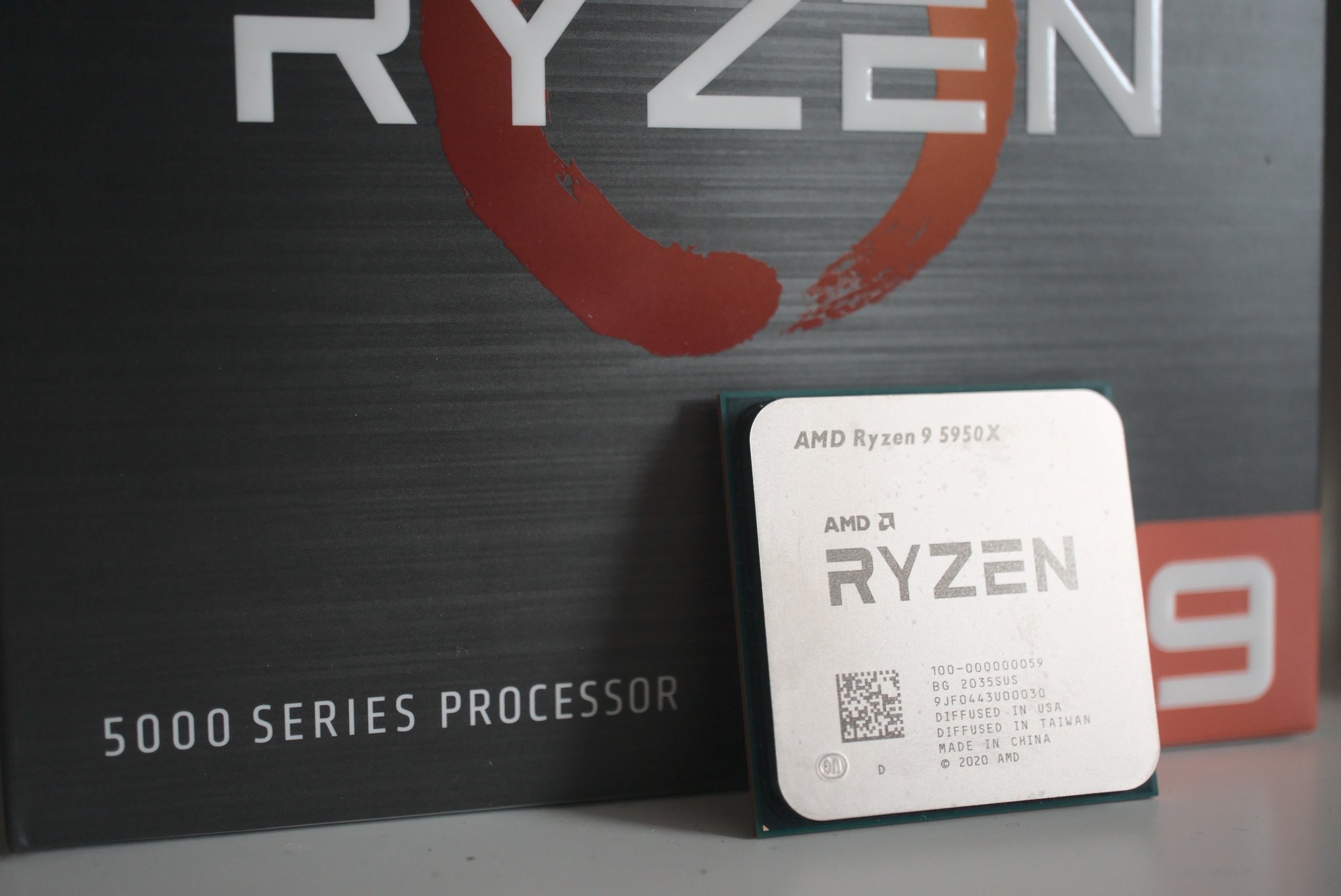
The primary competition to the Intel Core i9-12900K would be the AMD Ryzen 9 5950X, though you could also include the Ryzen 9 5900X with its still-impressive 12 core and 24 thread configuration. As one can see from the above benchmarks, AMD remained ahead of Intel's older Core i9-11900K processor, but that's all changed with Alder Lake.
Intel finally has an answer to AMD and it's great for consumers.
For most people looking for a new processor to build or upgrade a gaming PC, we'd recommend the Core i9-12900K for value and performance. Sure, you lose a few threads to AMD that results in a few losses with multi-core tasks, but Intel makes up for this with unmatched single-core capabilities. As an all-rounder, you can't falter the Core i9-12900K.
Where Intel may lose out to AMD is with pricing. Black Friday is just around the corner and you can bet AMD will be pushing for aggressive pricing across its processor range as more stock becomes available. This will make it a tough decision to not only buy a new Intel CPU but also a new motherboard and potentially RAM too.
Intel Core i9-12900K: Should you buy it?
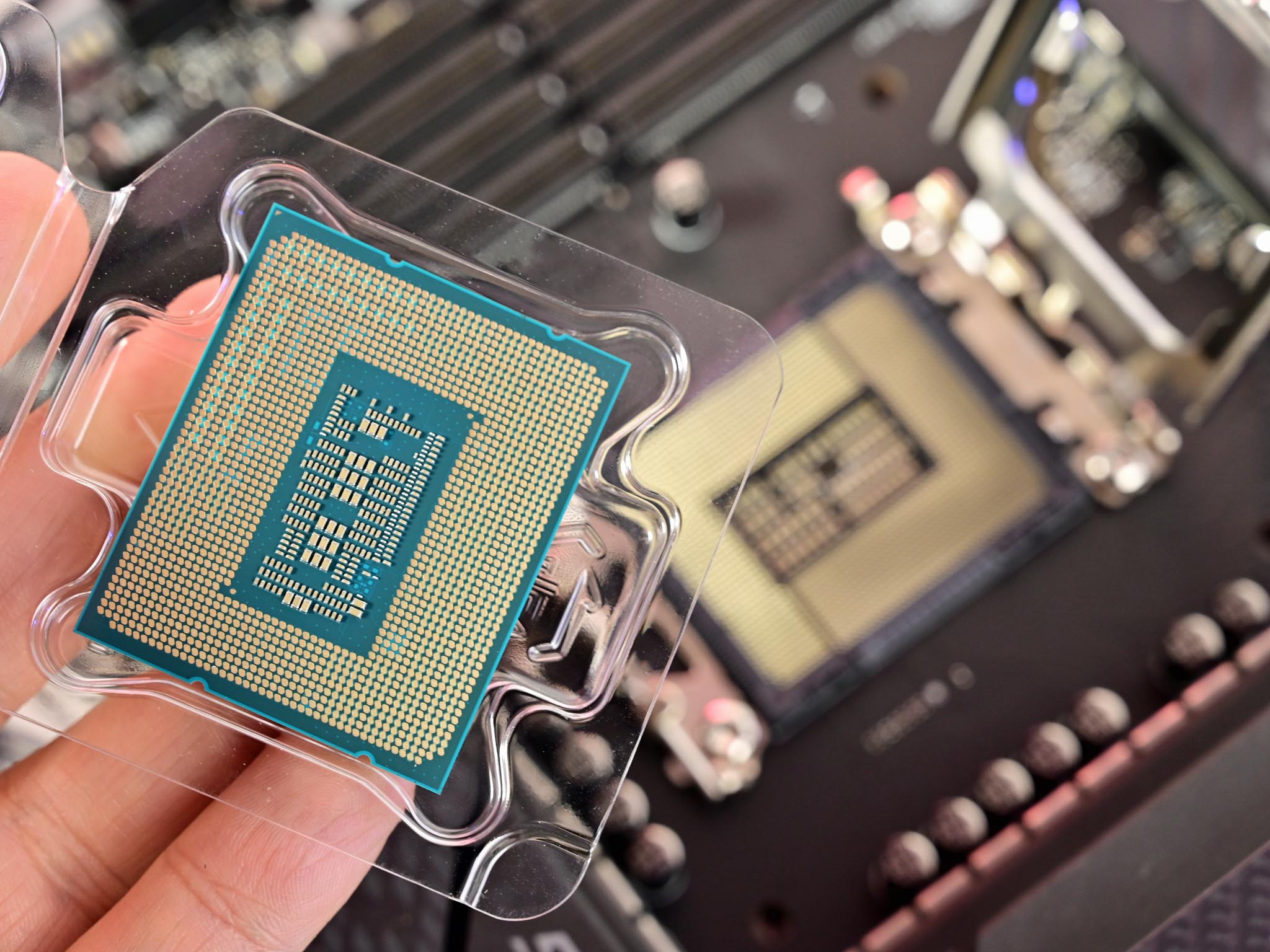
You should buy this if ...
You want the latest Intel CPU
The Intel Core i9-12900K is part of the 12th Gen family of processors. If you're after the very latest and best the company has to offer in 2021, this is the processor to buy.
You want the best single-core performance
AMD may still be king of multi-core tasks with the Ryzen 9 5950X, but that doesn't mean the Core i9-12900K is a slouch. Far from it as this CPU boasts impressive single-core scores, as well as decent enough numbers for multi-core tasks that would make AMD sweat slightly.
You should not buy this if ...
You need all the cores
While this is technically a 16-core processor, the Intel Core i9-12900K doesn't pack as many threads as AMD's Ryzen counterparts. If your workload demands as many cores and threads as possible, you'll need to go with AMD Ryzen or Threadripper.
You don't need top-level performance
If all you do on your PC is check some mail, visit various websites, watch some videos and play the odd game here and there, the Core i9 may be an overkill option. We'd recommend the Core i7-12700K instead.
Since 2018, we've recommended AMD processors for most consumers, which offered great levels of performance at undercut prices compared to Intel's own range of CPUs. In the latter half of 2021, this is no longer the case. Intel is now once again back in front of AMD, and not only on single-core performance.
If you're after the latest Intel CPU and have the budget to spare, the Intel Core i9-12900K is an impressive feat of engineering. This processor has the best single-core performance compared to AMD's flagship offering, but it also costs less (comparing MSRP) and even beats AMD in some multi-task tests.
Whether you need a CPU for gaming or for video editing, the Intel Core i9-12900K is an amazing processor. The new hybrid technology Intel is using just works. The CPU uses very little power when the system is doing next to nothing but is capable of ramping up to impressive clock speeds when you need the performance.
Your turn, AMD.

Rich Edmonds was formerly a Senior Editor of PC hardware at Windows Central, covering everything related to PC components and NAS. He's been involved in technology for more than a decade and knows a thing or two about the magic inside a PC chassis. You can follow him on Twitter at @RichEdmonds.
